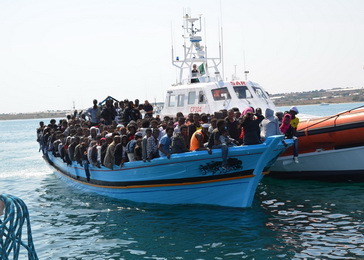 The action plan for issues of immigration and asylum presented on 13 May by the European Commission envisages mandatory quotas for EU member states for the acceptance of refugees. The quota mechanism is also envisaged for the reception of asylum seekers, i.e. their transfer from one member state to another in case of a large influx of migrants. The plan should enable for the burden of acceptance of refugees and asylum seekers to be equally divided in the EU. However, Great Britain, Ireland and Denmark can decide in both cases on whether they will participate, and there is EU-wide resistance to the introduction of such measures. In this context, the plan could suffer numerous changes before its adoption, having in mind earlier experiences in the EU with similar proposals.
The action plan for issues of immigration and asylum presented on 13 May by the European Commission envisages mandatory quotas for EU member states for the acceptance of refugees. The quota mechanism is also envisaged for the reception of asylum seekers, i.e. their transfer from one member state to another in case of a large influx of migrants. The plan should enable for the burden of acceptance of refugees and asylum seekers to be equally divided in the EU. However, Great Britain, Ireland and Denmark can decide in both cases on whether they will participate, and there is EU-wide resistance to the introduction of such measures. In this context, the plan could suffer numerous changes before its adoption, having in mind earlier experiences in the EU with similar proposals.
According to the European Commission plan, the number of refugees a member state can take will be determined based on the gross domestic product, population number, unemployment rate and number of refugees received by the country to date.
In the case of 20,000 Syrian refugees, which is the number the UN High Commissioner for Refugees is asking the EU to receive annually, most are envisaged to be received by Germany (3,086), France (2,375), Great Britain (2,309), Italy (1,989) and Spain (1,549).
The least number of refugees will be received by Cyprus (69) and Malta (121), while Croatia will receive 315, and Bulgaria 216.
Over 360,000 asylum requests were considered in the EU last year. Only half, 185,000, were approved, with the largest number of asylum seekers received by six countries – Germany, Sweden, France, Italy, Britain and the Netherlands.
Source: AFP, taken from www.euractiv.rs
 Government of the Republic of Serbia
Government of the Republic of Serbia















 pdf [271 KB]
pdf [271 KB]
Leave a Comment